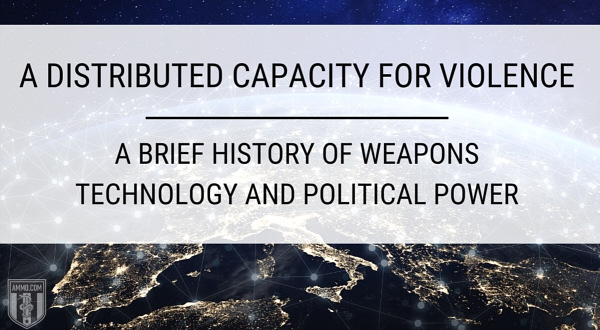

A Distributed Capacity for Violence: A Brief
History of Weapons Technology & Political Power
By Sam Jacobs. October 29, 2021
The Constitution contains a powerful set of ideals and a wise system of governance, based on a deep reading of classical and medieval history as well as Renaissance philosophy. However, none of this matters if no system of force is in place to keep and defend the Constitution.
Ultimately, this what the 2nd Amendment is about: A distributed capacity for violence guaranteed to private citizens so that they may serve as a check and balance on the power of the state.
America’s Founding Fathers understood an uncomfortable truth: Behind every law is the implicit threat of force, and behind every vote is the implicit threat of rebellion. Such a bargain is what holds a free society together. And no society with a wide power imbalance remains free for very long.
This truth was predicated upon the Founders classical education and their deep understanding of the power dynamics underpinning the systems of governance during the Roman Republic and Ancient Athens. The Roman Republic in particular influenced their views. Why? Because it provided not simply a template for government, but a historical warning about what can happen to a republic if precautions are not taken to ensure its survival.
Thus the Constitution intentionally contained concepts like separation of powers and a system of checks and balances. These concepts were predicated upon a core truth, as eloquently stated by Thomas Jefferson in the Declaration of Independence: ‘Governments are instituted among men, deriving their just powers from the consent of the governed.’”
If you picture political power as a pyramid, the intention of the Founders was clear: The individual was paramount, having natural rights, and the individual would then delegate a portion of his or her political power to the state - hence, the state governed with the individual’s consent.
..... 
![]()

























